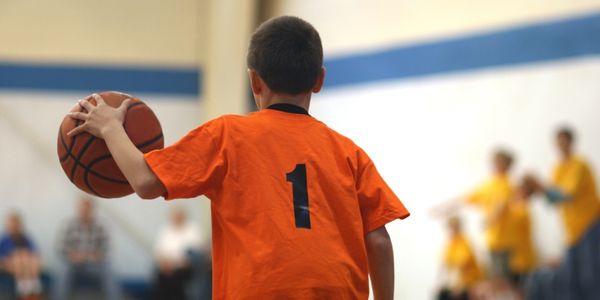How to Build Mental Endurance In Young Athletes
Young athletes can quickly become tempted to give in mentally when they’re trailing by a considerable margin or competing during unfavorable circumstances.
This is especially true when they think the odds are not in their favor. How can sports kids flip the script? How can they maintain their focus and mental edge when chances of winning seem slim?
The truth is, what kids tell themselves is powerful. Kids can talk themselves into or out of improving their performance. Their self-talk affects their emotions, physiology, mental processes and the choices and risks they’re willing to make.
This means that sports kids’ self-talk impacts their willingness or ability to bounce back during a competition.
For example, if kids are losing 4-0 at halftime in a soccer match and tell themselves, “We have ZERO chance to win,” will they be motivated to keep trying and playing hard?
Athletes’ negative messages will wear them down mentally and physically. Instead of focusing on opportunities to score, they will be distracted by negative thoughts.
Positive Self-Talk And Its Benefits
However, sports kids can change their self-talk, which will enhance their efforts and focus during games. With positive self-talk, they will look for opportunities to make plays and be more productive on the field.
In the 2022-23 AFC wild-card playoff game against the Los Angeles Chargers, Jacksonville Jaguars quarterback Trevor Lawrence talked about the role of positive self-talk in his team’s 27-point comeback for a 31-30 victory.
“You couldn’t write a better script to win a game like that tonight… I’m kind of speechless, just to see what belief can do and to see when a team believes in each other what you can accomplish,” Lawrence said.
After the game, Jacksonville head coach Doug Pederson talked about how the team’s mentality set a positive tone for the comeback victory.
“We’ve been in that situation before,” said Pederson. “I will say that being 27 down, you’re scratching your head, going, ‘Okay, can we do this?’ There was a lot of belief at halftime that we could. The guys felt it, and it just showed me again how close this group is, how tight this group is. No matter what adversity or challenges that face us, we’re willing to take them on, to tackle them and overcome them.”
Athletic resilience is a crucial component of athletic success, and resilience starts with sports kids’ ability to be in charge of their self-talk.
Help sports kids remember that they are in the command center and that they control their internal messaging.
Young athletes can bounce back when trailing late in a game by trying the 4-R Strategy. Athletes need to:
- Recognize when their self-talk is undermining their confidence.
- Reject messages that don’t help them think confidently.
- Reverse their messaging. Instead of focusing on what they fear will happen (losing), they should use self-talk to refocus in the present (executing the current play).
- Re-engage and immerse themselves in what they are doing or need to do in the moment.
Related Articles on Kids’ Mental Game:
- Ensure Young Athletes’ Self-Talk is Positive
- Self-talk That Destroys Young Athletes’ Confidence
- When Youth Sports Feels Toxic, Athletes Need These Skills
*Subscribe to The Sports Psychology Podcast on iTunes
*Subscribe to The Sports Psychology Podcast on Spotify
Improve Your Mental Game From Anywhere In The World

We’re certain that, as a parent, you want to help your child develop confidence and discipline in sports and life. And as a sports parent, you’d love for your children to reach their potential in sports. But encouraging your child to strive for greatness without pressuring them can be a challenge.
You can get expert mental coaching with us from anywhere. Meet with us via Zoom, Skype, FaceTime or phone call. With today’s video technology, we are able to connect with athletes and coaches all over the globe.
Call Us Today to Schedule Your Free 15-Minute Session.
Find Out How Your Athlete Can Benefit From One-on-One Mental Coaching!

